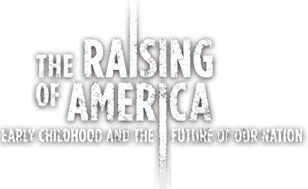All You Heard Was Pow-Pow-Pow-Pow
to watch purchased videos
Add to Your Favorites
Remove from Your Favorites
Clip Transcript
Ted Corbin, Assistant Professor, Drexel University College of Medicine and School of Public Health; Medical Director, Healing Hurt People Program
It doesn’t necessarily have to be from an injury that occurred to them but it could be over the course, over their life course, how they’ve been exposed to various types of stress, adversity and trauma.
NARRATOR: Dr. Ted Corbin practices emergency medicine at Hahnemann University Hospital in Philadelphia—another city where the class divide can be dramatic. Neighborhoods run the gamut from comfortable historic homes to some of the most economically distressed communities in the country. Researchers suggest the PTSD rate among the urban poor in Philadelphia could be a shocking forty percent. The city’s corrosive history of race-based politics of economic exclusion undermined many non-white neighborhoods, leaving them without jobs, infrastructure or affordable housing. The poverty rate in 2011 was 34% for African Americans, 42% for Latinos. More than one in three children in Philadelphia grow up in poverty. From birth they are swimming against a stream of stressors: over-crowded or run-down housing; family worries about job loss; making rent and paying bills. Having enough to eat. Substance abuse. Domestic conflict. Neighborhood safety.
NAR: Twenty-four-year-old Christine Henry can relate. She’s been bringing up her children in North Philadelphia. Three-year-old Key-yon loves trucks. Older brother Izayah is four years old and excited about going to kindergarten next year. Six-week-old Christian is the new family member. Like all loving parents, Christine and her partner, Tracy, work hard to provide the safe, stable and nurturing environment that all children need to thrive.
Christine Henry, mother of three:
It’s like, within a blink of an eye, all you heard was pow, pow, pow, pow, and it was like, extremely close. I grabbed him but I actually hid him and I used myself to cover him. So I did everything in my power to keep his eyes away from it, to keep him away from it, to cover his ears, everything to just try and take some of that fear away from him, because instantly he just tensed up. When we finally got into the home and everything was over and everything was done with, he was really scared, he didn’t want anybody to touch him.
NAR: After the incident, Christine went to 11th Street Family Health Services for help. It’s her North Philadelphia health center, serving a sometimes-dangerous neighborhood. At 11th Street, social worker Aisha Coulson-Walters was able to provide Christine with counseling and support. Aisha could also see the incident had affected Izayah.
Aisha Coulson-Walters, Social Worker, 11th Street Family Health Services:
[Izayah] was crying, he would get, like, angry. He just seemed fearful. Like, he would jump; he would, you know, have moments of hesitation, and just look like he was afraid.


